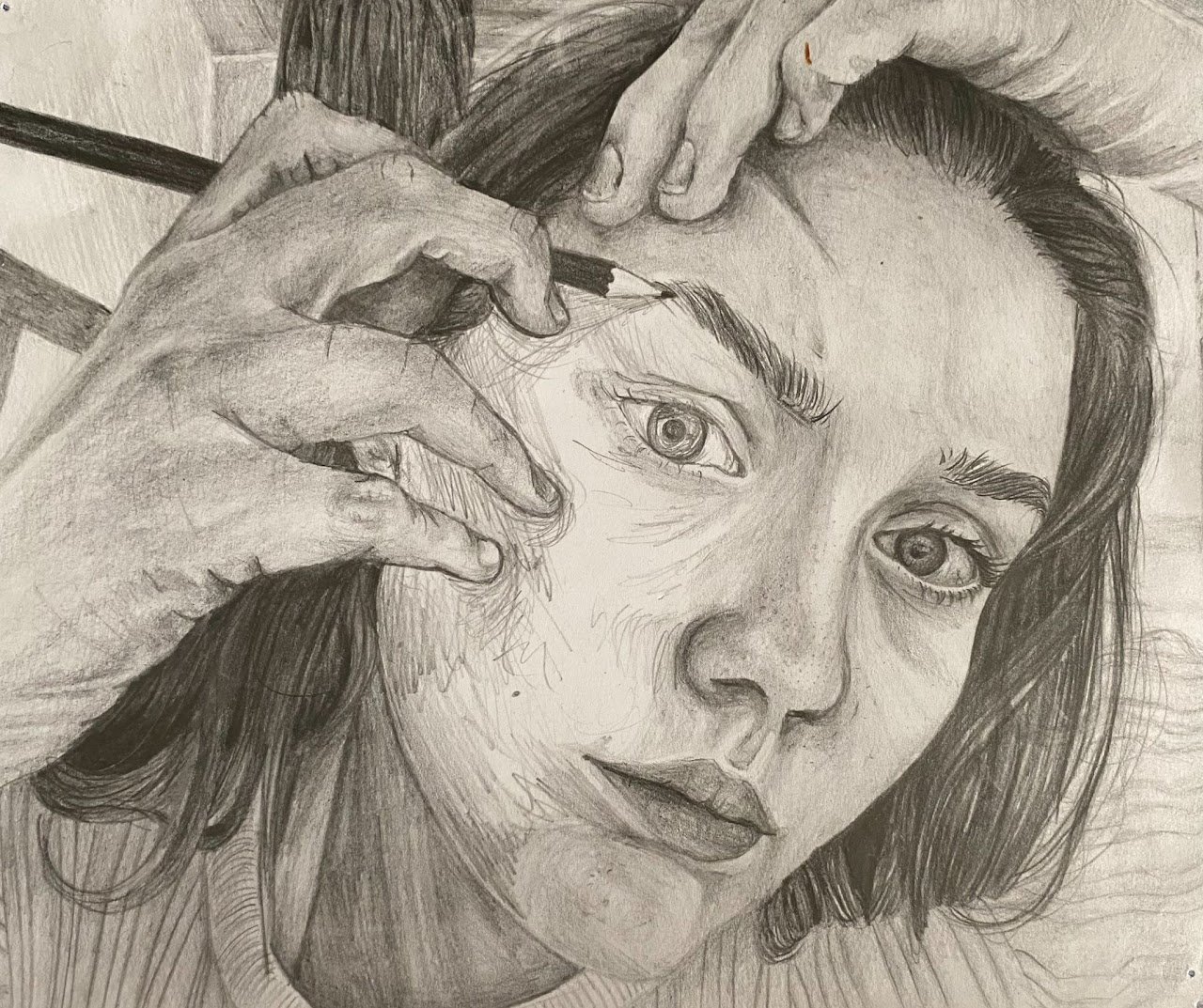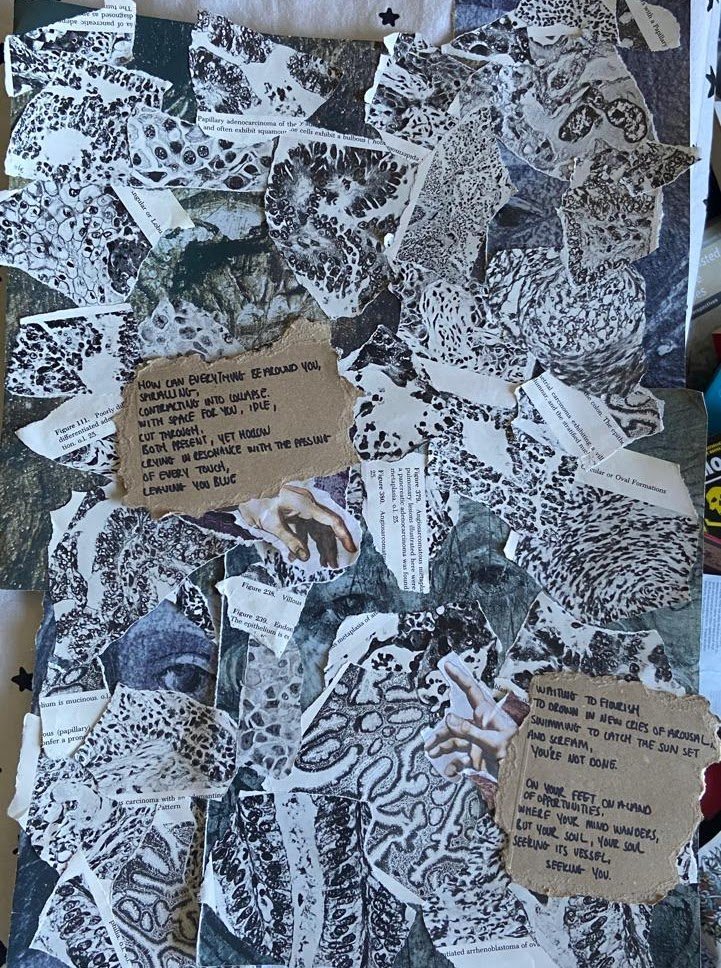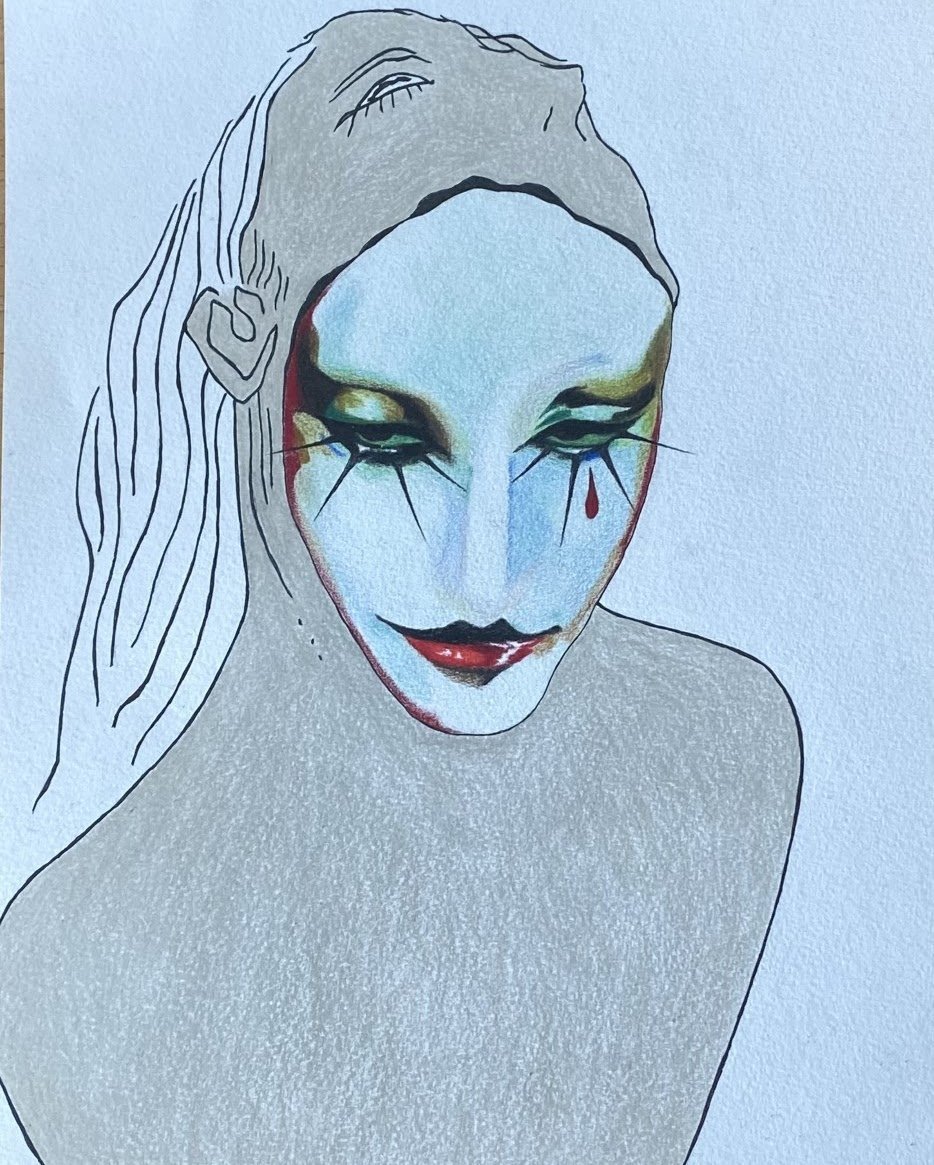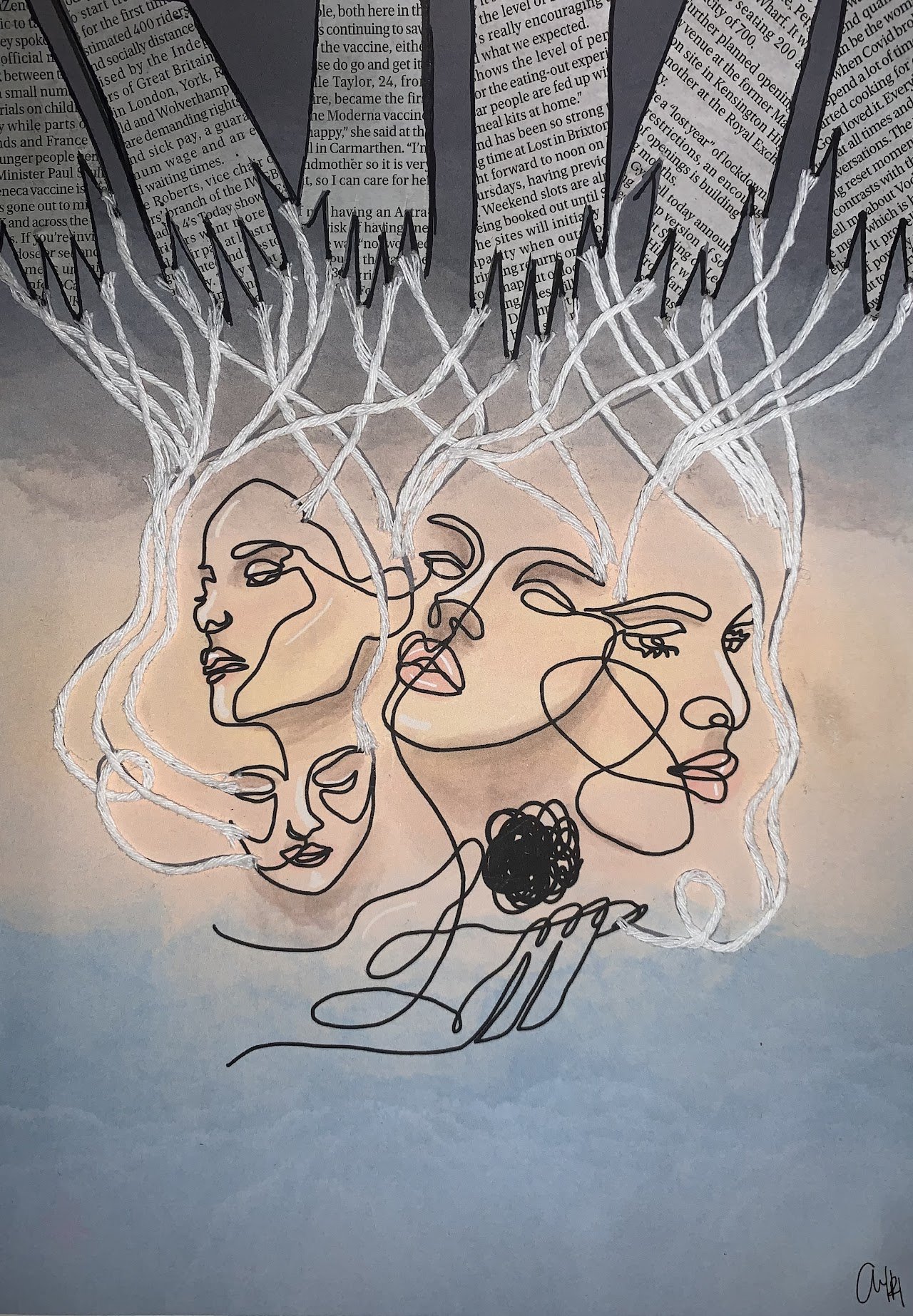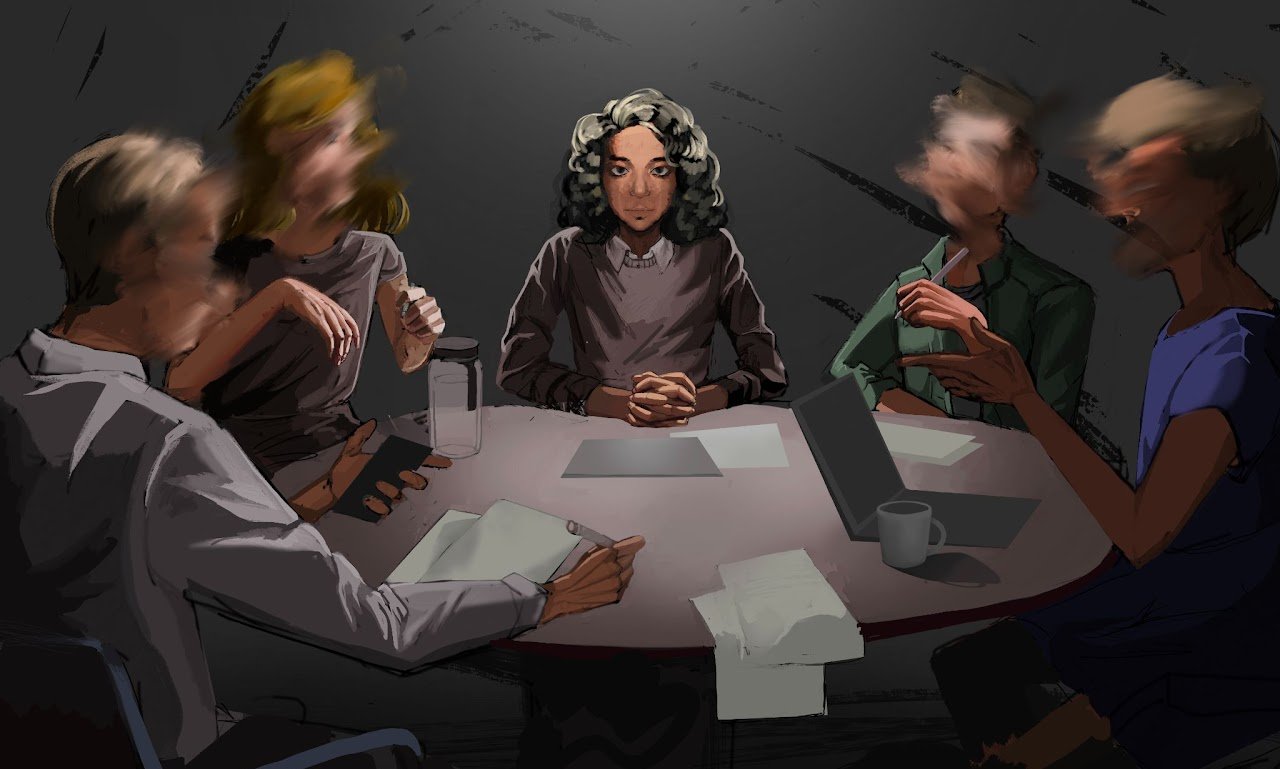
Creative enquiry is the exploration of lived experience through the arts.
Encountering and understanding ourselves better, reconnecting with our values, meaning and purpose, gaining self-acceptance, developing positive relationships and personal growth are features of human flourishing that have all been described by medical students engaging in creative enquiry. These dimensions of creative enquiry also can lead to practitioner development (developing our understanding of our healthcare practices in their intersubjectivity and complexity).
The engine of Creative Enquiry innovation in the medical curriculum is the Creative Arts for Health Student Selected Component which I set up in 2004 at the University of Bristol and continue to run at Barts and The London, QMUL.
-
When I began this piece as a final project for my SSC, I wanted to create a portrayal of the feeling of constantly having to fill in parts of yourself, repairing imperfections to fit someone else’s expectations. But as the SSC continued, and I continued to work on and receive feedback for my piece, I learnt a bit more about flourishing. I realised that I didn’t have to be so hard on myself for not meeting expectations. Throughout this SSC I found that there was a kinder way for me to grow. Now, looking at this project after finishing my SSC, I look at this piece as an expression of my willingness to grow and develop to become the best possible version of myself.
When I began my creative enquiry, I decided I would double down on the idea of perfectionism and push myself to create something within a narrow time-frame, not allowing myself to make adjustments to the imperfections which I perceived in my work. I allowed myself only a long weekend to complete the project. My first attempt took me only 2 days of work. I was happy with it upon completion, but when I looked at it again after a few days, I was displeased with it. I wrestled with myself over whether or not to restart; to start again would mean ignoring part of my initial prompt, and completely dismissing the premise of working in a set time frame; but on the other hand I knew that I could do better and would feel regretful if I did not at least try to improve the mistakes I made.
I eventually did create a second piece, followed swiftly by a third, then a fourth. It was the fifth attempt which I decided was adequate enough for me to submit to my tutor.
As medics, we are often unwilling to share our experiences of mental struggles (despite studies showing that doctors have higher rates of depression and anxiety than the general public (1)) due to internal and external stigmatization (2). Even writing about the feeling of being imperfect feels risky, like I am being caught out in some big lie. The importance of sharing with each other our stories, through creative means or otherwise, cannot be understated – it is through understanding each other that we can learn to be kinder to ourselves and truly flourish.
References:
1 Gerada, C. (2018). Doctors, suicide and mental illness. BJPsych Bulletin, [online] 42(4), pp.165–168. doi:https://doi.org/10.1192/bjb.2018.11.
2 Knaak, S., Mantler, E. and Szeto, A. (2017). Mental illness-related stigma in healthcare. Healthcare Management Forum, [online] 30(2), pp.111–116. doi:https://doi.org/10.1177/0840470416679413.
-
In this creative piece I decided to represent a recurring state of mind: confusion and isolation. As a child I was hopeful that external influences will ultimately curate an ideal path for me. Yet only for so long could I thrive under such a way of thinking, and eventually was faced with the fact that every choice I took was mine. I was responsible for all their consequences. My piece represents the overwhelming nature of choice, combining the chaotic nature of cancer (histology) with pieces of eyes, a representation of being succumbed and suffocated by a fast paced, abundant world, bearing hundreds of choices to select from, with dozens of desires scouring my mind. Yet regardless of the options, I remain living in a perpetual lack of comfort and satisfaction.
The freedom of choice is suffocating and frightening, like the nature of cancer, so sometimes it is easier to become an observer, remain hidden behind it all, just like the inconspicuous eyes in this piece.
The Near Peer Teaching SSC/Elective has created formal teaching opportunities for final year students. It is rapidly expanding and popular with both students and GP tutors. Students are allocated to GP practices for 4-6 weeks and assist the GP tutor to organise, plan and deliver teaching to more junior students as well as allied health professionals.
In 2017 we introduced creative enquiry into the Roy Alexander Briggs GP prize. Each year there are different themes
As part of their primary care placements, students are invited to complete a reflective piece using different prompts offered across the year groups. In year 1, students consider their professional identity formation. In year 2, students reflect on a significant encounter they have had with a patient. In year 3, students may either reflect on compassion or generalism.
Barts and the London Arts is a new creative enquiry initiative which aims to bring together, explore and display creative works from both students and staff in the Faculty of Medicine and Dentistry. We run exhibitions and workshops and seek to expand student ways of knowing and reflecting across the curriculum.
An invitation to anyone to take some time for creative exploration on Fridays and tag @CreativeEnquiry, use #FlourishingFriday or submit here.
COVID-19 has been a time of great loss and challenge. For medical students, their clinical placements drew to a halt and distancing set in. In response a team of students and clinicians established a lockdown creative enquiry programme as a way of exploring and sharing lived experience. This pilot evidenced student leadership and co-productive working in order to develop innovative and complex virtual educational spaces. We built connection, relationship and solidarity across disciplines and hierarchies through the arts.
SAPC World Upside Down
From SAPC World Upside Down, 2021
See student presentations for SAPC South East 2024 here.
Resident doctor artwork
Creative-reflective texts in this section are created by patients, carers, relatives or friends, anyone touched by illness. Some texts are by those who have experienced illness or caring for illness directly and others by those nearby using their imagination in order to try to explore or portray the patient or carer lived experiences.
This two-day online event explores productive, radical, contemporary encounters between the arts and mental health, bringing together clinical, artistic and research perspectives.
In 2019 we introduced creative enquiry into this conference as a physical exhibition in 2019.
See here for 2020 virtual exhibition.
See here for 2021 virtual exhibition.


